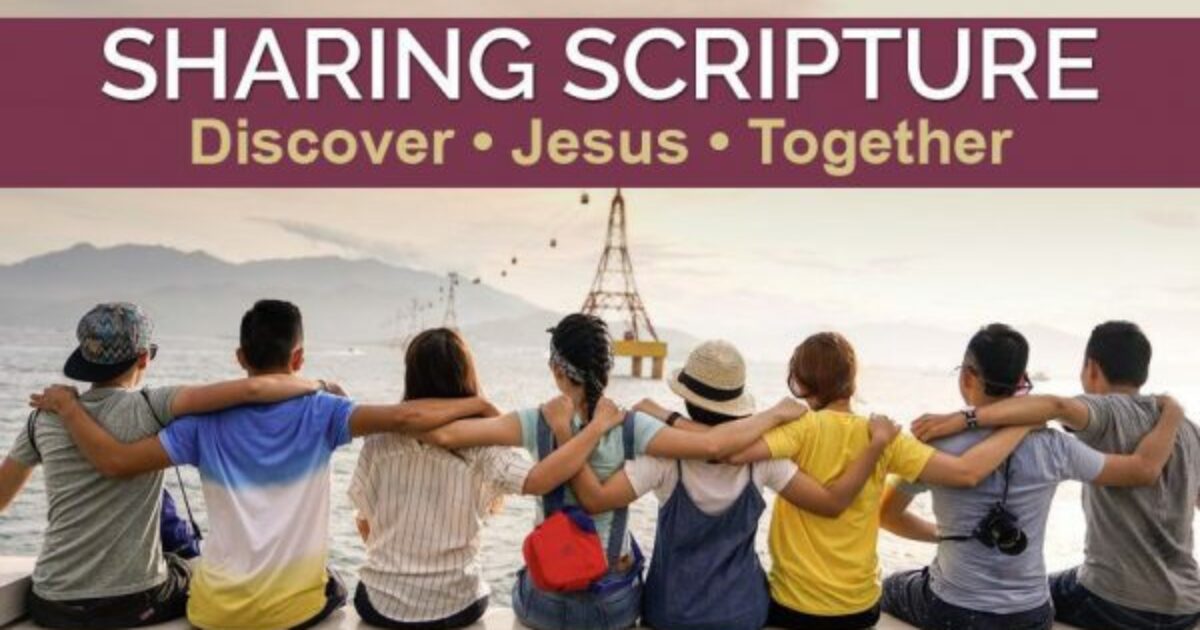Sharing Scripture for September 22 – 28
[symple_heading style=”” title=”A Community of Servants” type=”h1″ font_size=”40″ text_align=”center” margin_top=”0″ margin_bottom=”30″ color=”undefined” icon_left=”” icon_right=””]
This is a tool for you to use if you lead a Sabbath School (SS) class or small group. It is keyed to the Bible texts used in the current week’s Adult SS Lesson and includes a brief story from current news you can use to introduce the discussion and then a series of discussion questions in a relational pattern designed to build fellowship and spiritual reflection.
For use: Sept. 22 – 28
Texts:2 Corinthians 2:14-16; Exodus 32:1-14; 1 Peter 2:12; Philippians 2:15; Ephesians 2:19; Hebrews 10:23-25
When disaster strikes, it likely won’t be emergency responders who come to your immediate aid—it will be your neighbors. Cannon Beach, Oregon’s Emergency Management Consultant Stacy Burr and Police Chief Jason Schermerhorn are holding individual preparedness meetings in each of the city’s 12 neighborhoods to get the message out.
“The key to success,” Burr elaborates, “will rely on neighborhoods filled with people who know what to do.”
Most residents in attendance had questions about what to include in a go-bag. They also asked where they can find supplies and how the city planned to communicate with them when phone lines are down and roads are blocked with debris. Of course, they also had to learn how to communicate among themselves.
For Luanne Barrett, the meeting was the first time she met some of her neighbors since moving to Cannon Beach six months earlier.
“We really want you to get to know your neighbors,” emphasizes Burr, “and be able to work with them, because that’s what it will take to be resilient.” [1]
God has called the church to be a community of people helping people. As the introduction to our lesson this week puts it, we are to “serve as the hands, feet, voice, and heart of Jesus in the world today.” At the establishment of Christ’s church, the members had to care for each other through necessity. There were no governmental or private organizations established to care for the disadvantaged, so Christians stepped up to help the widows, orphans, and poor among their ranks. The Christian community began by lifting each other up—which action then helped them build the organization and resources they needed to begin reaching out to their neighbors outside of the church.
As people join this community of servants, those who remember where they came from will exhibit an atmosphere of grace and mercy toward others. Everyone of us has fallen short of God’s ideal for humanity at some point in our lives, so no one is in a higher position than anyone else. We are a community of sinners in need of a Savior.
The ultimate goal of serving the least of these in practical ways is to show the world who Jesus is and what heaven is all about. As we feed the physical person, Jesus wants to feed the spiritual nature of each soul. Helping people experience a better life here today is great; helping them find the ultimate life that God offers for eternity is magnificent.
[symple_divider style=”solid” margin_top=”20″ margin_bottom=”10″]
Connecting: What unique spiritual gift or resource do you have to offer for helping others? Write your answer (but don’t include your name) on a slip of paper and give it to your facilitator. As your group leader reads the answers, try and guess who wrote each one. Discuss how the entire group together is sometimes more effective in serving others than are individuals working alone.
Sharing: What is the best way to encourage others to accomplish good works?
- Make it a competition by listing your good deeds from the previous week on a white board in your class
- Find community needs that you and your friends naturally have a passion for and create opportunities to meet those needs
- Regularly read passages that remind people that they need to be about the work of helping others
- Offer incentives such as gift cards for people’s involvement in helping ministries
- Make opportunities to work for the good of others into enjoyable social events, encouraging and empowering each other while serving
- Other:
Applying: Using a scale of 1=Ourselves and 5=Outside Community, how would you rate your church community on its servant focus? Are you more focused on helping your local members than the community? If so, is that bad? How can you help to ensure that your congregation is balanced in its service?
Valuing: When you evaluate your own acts of service to others, do you tend to be a team player, or a lone wolf? Whichever side you lean towards, pray that God will help you be as effective a servant as possible.
~Chuck Burkeen




